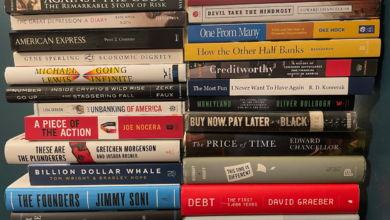Small banks targeted as FDIC cracks down on technology partnerships

Earlier this week, Politico’s “Morning Money” column reported an astonishing finding that almost certainly points to politicization in enforcement by federal bank regulators.
The column revealed an analysis by the Klaros Group. It found that banks partnering with FinTech firms such as the popular payment app Chime face a 15 percent chance of receiving an enforcement action. This was in stark contrast to the rate for banks that don’t partner with FinTechs. “By comparison, if you weren’t a FinTech partner bank, your odds of drawing a formal order during the same time period were just 1.8%,” the author of the analysis noted in a LinkedIn post.
Politico added that some are comparing the FDIC’s apparent targeting of banks that partner with FinTechs to Operation Choke Point, the Obama administration scheme in which the FDIC and other regulators pressured banks to cut ties with industries, from firearms to fireworks, deemed to have a higher “reputational risk.”
The resemblance to Choke Point is indeed alarming, but also very concerning is the impact this apparent regulation by enforcement will have on small banks’ ability to innovate. Several Biden appointees at the FDIC – including Chairman Martin Gruenberg and board member Rohit Chopra – have expressed concern for the health of small banks. Why is their agency making things harder for them?
Big banks do not have nearly as pressing a need as their smaller counterparts to pursue FinTech partnerships, since they have the resources to produce financial technology in-house. As I wrote in National Review: “Big banks already use this technology… Smaller banks most often lack the resources to do this but in recent years have closed the gap through partnerships with innovative fintech firms.”
Partnerships with FinTech firms enable small banks to compete with their larger competitors to offer more personal and small-business loans tailored to their customers’ needs. As the Independent Community Bankers of America and other groups representing small banks have noted in a letter, “when community banks…partner with technology firms, they can efficiently and conveniently deliver services that customers demand, from a bank that customers trust to meet their financial needs.”
Harsh enforcement is very far from a regulatory best banking practice internationally. As I noted, “Banks partnering with fintech firms is, in fact, an international trend. In the United Kingdom, for instance, the government actively encourages banks to take the ‘Fintech Pledge’ to work with fintech firms to expand consumer credit.”
Congress should immediately investigate the FDIC’s new Choke Point for banks partnering with FinTechs. And this arbitrary action is yet another reason not to give the FDIC more unaccountable powers, and slam the door shut on the RECOUP Act or similar legislation that would give the FDIC the power to fire executives at banks of any size.
The powers of the FDIC should be curbed, not boosted, as this brewing enforcement scandal shows.



